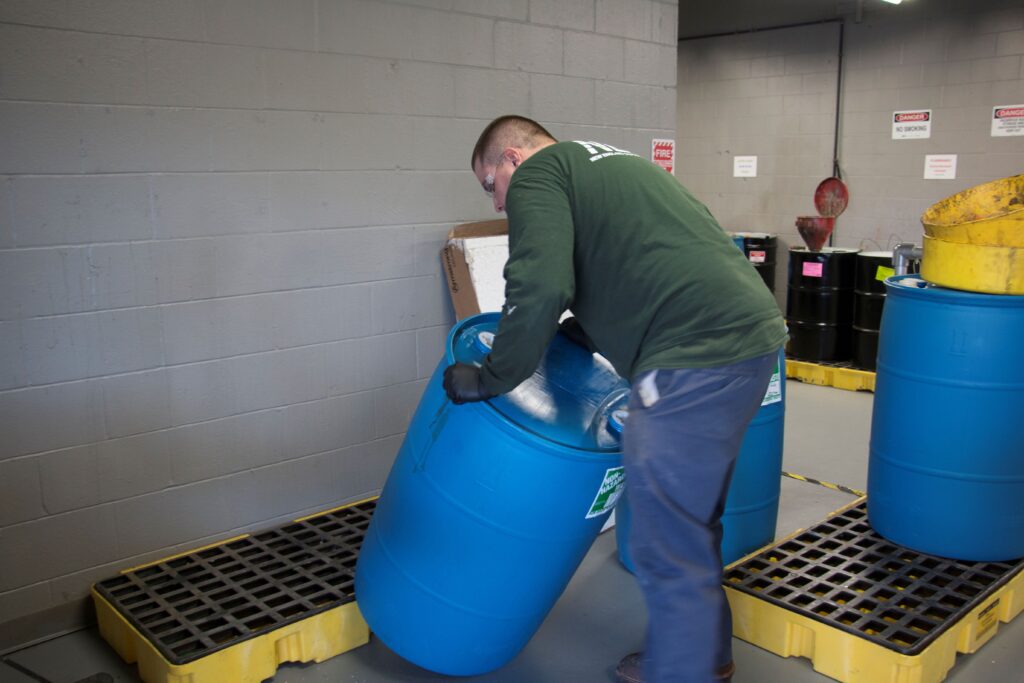If you’ve ever had problems with your driveway, chances are you’ve bought a container of driveway sealant if you’re not interested in paying for a professional rebuild. One look at the warning label – especially on older products – will show this stuff can be pretty toxic, containing Polycyclic Aromatic Hydrocarbons (PAH). If the sealant you’ve got contains PAHs, you need to take special care in both handling and disposal of this hazardous household product.
The Problem with Polycyclic Aromatic Hydrocarbons
Commonly known as coal-tar pitch and derived from the liquefaction of goal, the most viscous grades were often used for sealcoats, including commercial and residential products. These Polycyclic Aromatic Hydrocarbons are known carcinogens and pose a threat to residents and the environment:
- Human Exposure to PAHs: The two most common dangers of exposure to PAHs are inhalation and through the skin. When heated, these sealants may release PAHs, including naphthalene (which smells of mothballs). The dust can also be tracked into homes.
- Environmental Impact of PAHs: The runoff of PAH from sealants and other coal-tar products (including asphalt) can also affect the environment, especially aquatic wildlife, with studies showing a notable impact on juvenile amphibians and fish.
Safe Handling of Driveway Sealant Containing PAHs
If you are using driveway sealant with PAHs, it’s important to handle it safely. Always wear rubber gloves to avoid skin contact and work in well-ventilated areas. Make sure the sealant is stored in closed containers. Many newer driveway sealants use latex instead of coal-tar pitch. While these do not have the same toxic properties, they need to be stored in insulated areas: freezing will destroy the product, just like with latex paint.
Proper Disposal of Driveway Sealant
If you’ve got extra driveway sealant after a project or a container gathering dust in the garage, you should know your disposal options:
- Use up what you have. Unless you’ve got concerns about the age or PAHs in the sealant, try to use it up or donate it to a neighbor or local contractor.
- Dispose of it at home. Remove the lid and allow it to dry out in a well-ventilated space before throwing it in the trash.
- Take to a collection facility. For larger amounts or if you’re concerned about PAHs, take them to a municipal collection center, if accepted, or a Household Hazardous Products Collection Center.
The NEDT Household Hazardous Products Collection Centers are just such a place. We’ve got multiple locations to help New Englanders dispose of sealants and other common hazardous waste from homes. Learn more about what we accept and educate yourself more on driveway sealant and other household hazardous products with our Fact Sheets. We also provide pick up services: contact us to learn more.



Leave a Reply